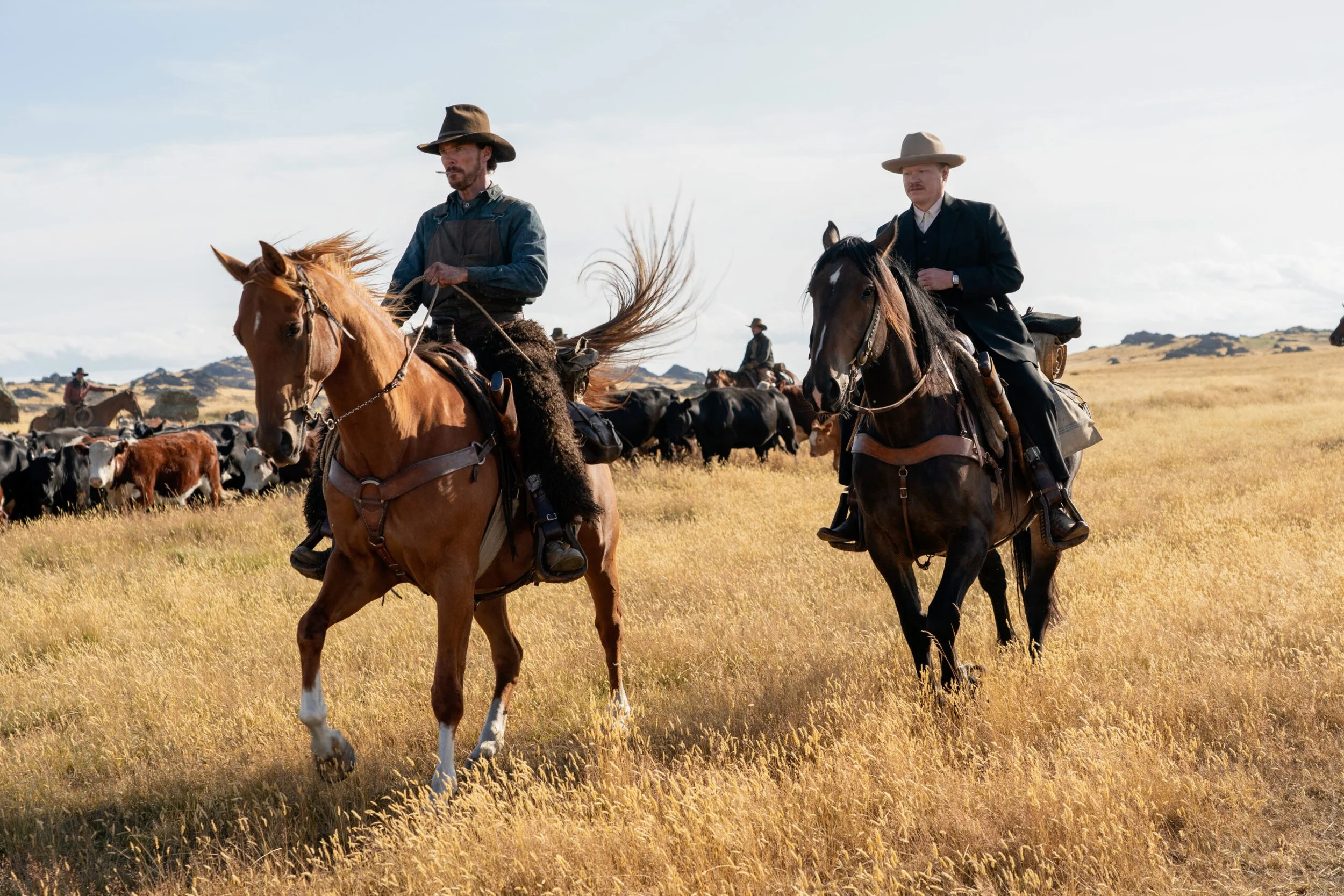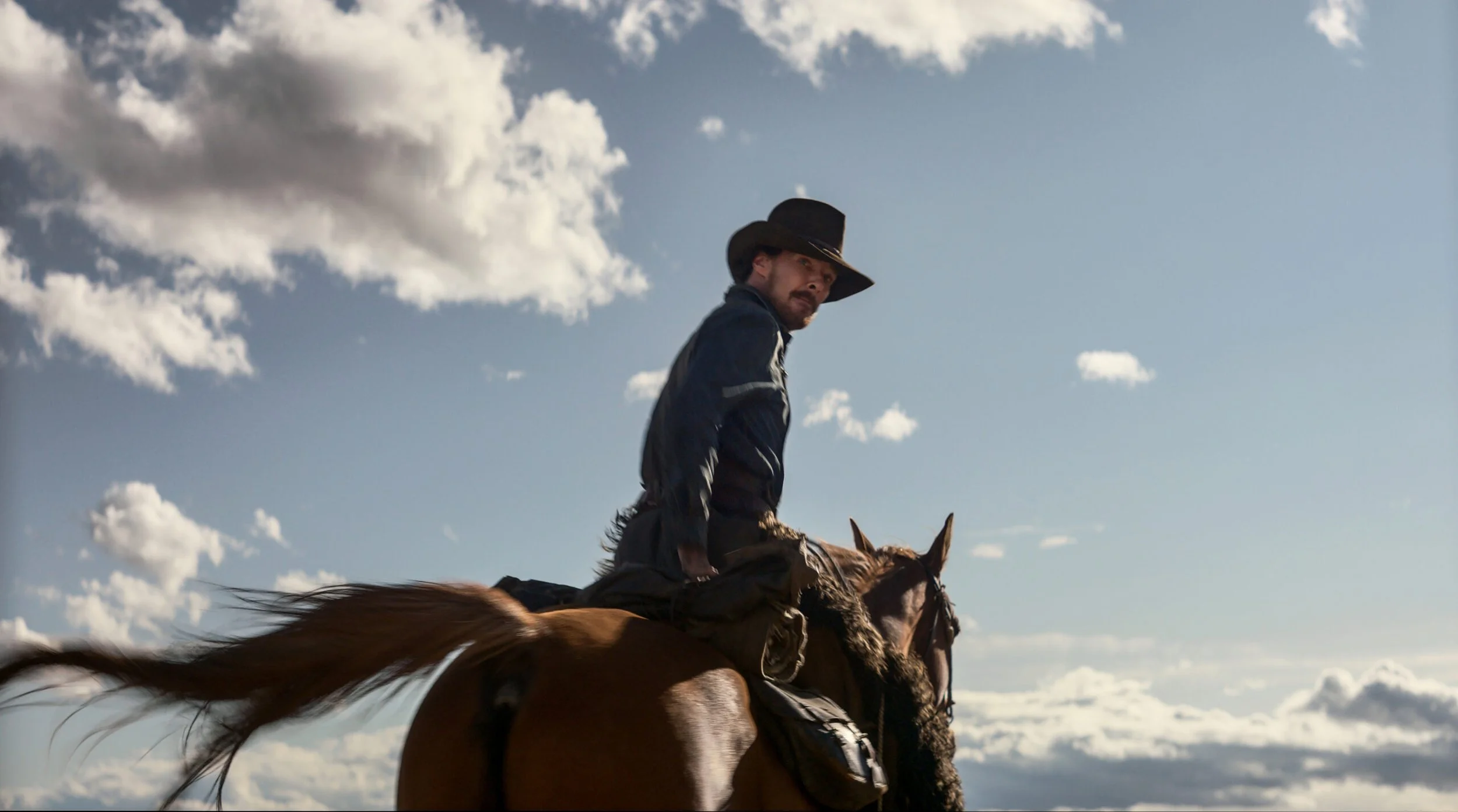The Power of the Dog (dir. Jane Campion, 2021) — Review
American movies almost always revolve around power; rarely do they pause to determine what ‘power’ might actually mean. New Zealand director Jane Campion’s latest offering draws on its Western setting to highlight the transience of an apparently foundational concept, the pursuit of which has formed swaggering narratives but left many uneasy questions.
Campion’s reputation qualifies as a plot point in itself. Positioned as a pioneering, or at least distinctive, female auteur since the 1990s, the director returns to her signature themes of masculinity and the great outdoors (established by The Piano) with the additional perspective, and expectation, of a 12-year filmmaking hiatus. The resulting adaptation of Thomas Savage’s 1967 novel benefits from a great sense of space. Bolstered by a highly capable A-lister cast, the commercial might of Netflix, and, perhaps, the weight of Campion’s own artistic authority, The Power of The Dog will not hurry for anyone.
Spartan plot elements set the stage for a bitter showdown: in 1925 Montana, wealthy cattle ranchers George (Jesse Plemons) and Phil (Benedict Cumberbatch) live a simple life of fraternal blustering, livestock, and rural machismo. The meek George seems content to weather the shrewish jibes of Yale-educated Phil — until George brings home a wife, Rose (Kirsten Dunst), and her teenage son Peter (Kodi Smit-McPhee).
The setting — a landscape of stunning, unconquerable isolation — proves more capable of expression than the characters crushed beneath it over the course of a deliberate, languid film. Just as science fiction might use a remote future to suggest the essential qualities of human nature, the fantasy Montana of the Western draws out essential notions of American power. America has long drawn its identity from the pursuit of this elusive ‘power’, without knowing exactly where to find it; in terms of feeling, though, few genres express the joy of physical conquest more convincingly than the Western, with its rugged, violently simple language of struggle and survival. Author Thomas Savage pulled this myth apart in his austere yet tortured Western novels, which drew on his experiences of growing up on a ranch to express the suffocating emotional reality. The Power of The Dog turns away from the reassuring, familiar physical binaries of good guys and bad guys to erode the distinction between physical and mental violence.
If the traditional Western celebrates macho power as a physical triumph over nature — shooting at ‘Injuns’, sweeping maidens from train tracks and the like — Campion’s film offers an equally clear expression of Savage’s world, where the real, futile struggle —against one’s own nature — takes place in the characters’ heads. The hopeless, intermingled onslaught of gentleness and savagery in the natural world brings out painful contradictions of the dysfunctional ‘family’. A rabbit which Peter brings into the house draws out not only Rose’s unfulfilled mothering instincts as she sinks further into her alcoholic stupor, but the harder edge within the apparently victimised Peter, who dissects it. Tools, accessories, and practical items in this repressed, hypermasculine theatre groan with emotional import. The way in which the characters go about cleaning a saddle, or braiding a piece of leather, says more about their inner conflicts, and the overall narrative, than their interactions with each other can. In this day and age, writers and stars alike may thirst for the plaudit of a ‘powerful’ movie or performance: in the film, as in Campion’s work more broadly, it transpires that those who attain it may do so in unlikely ways.





